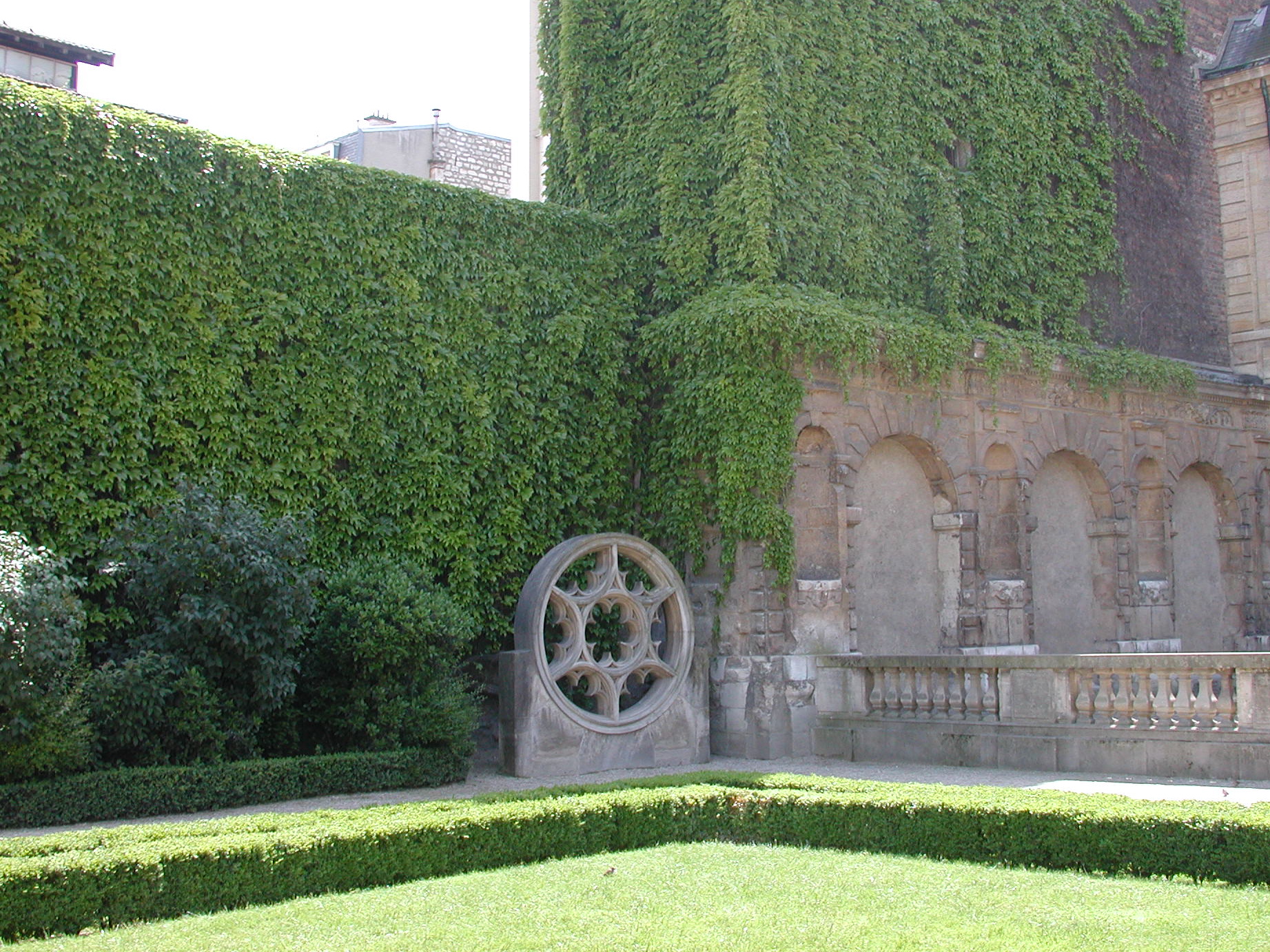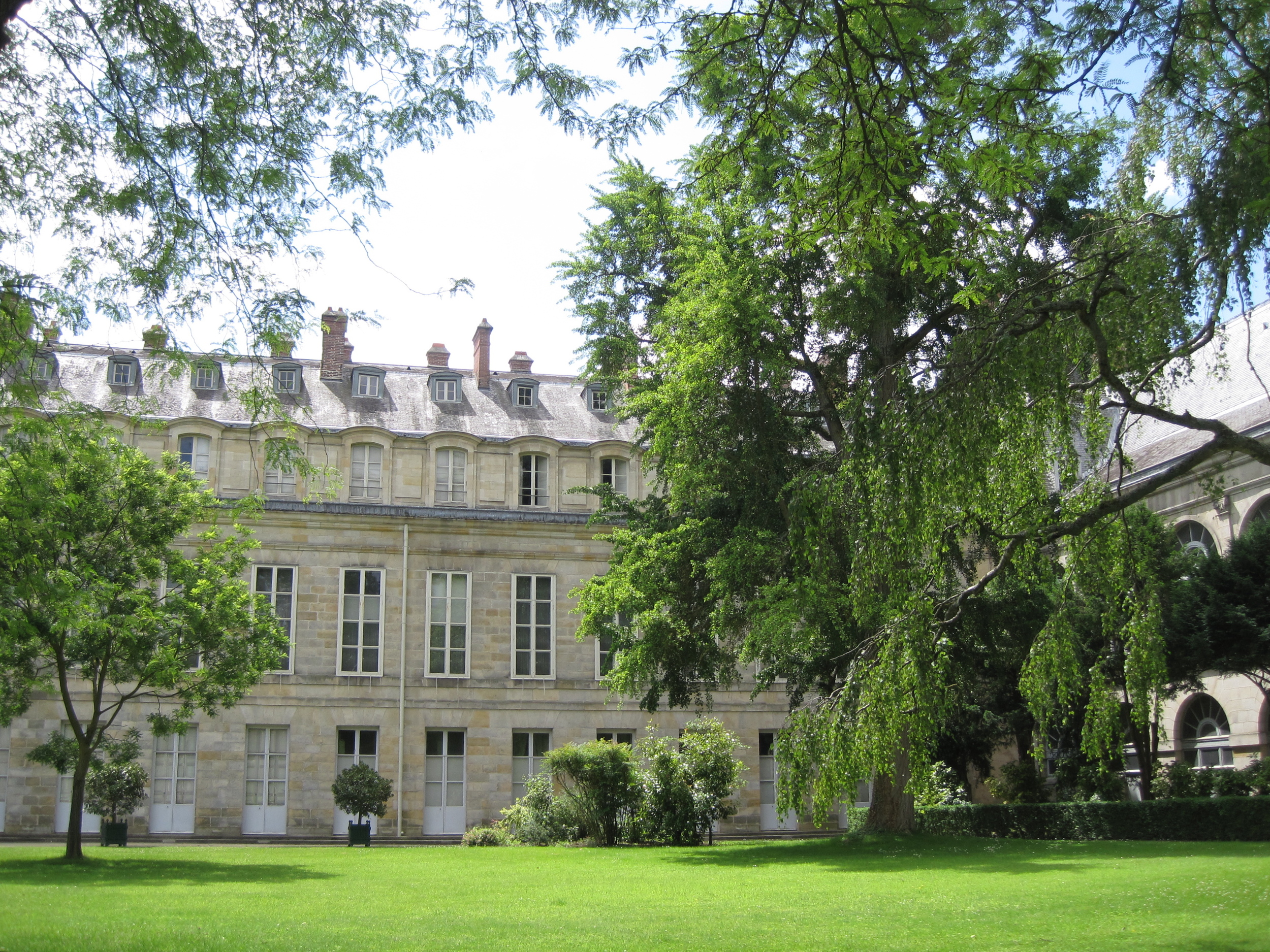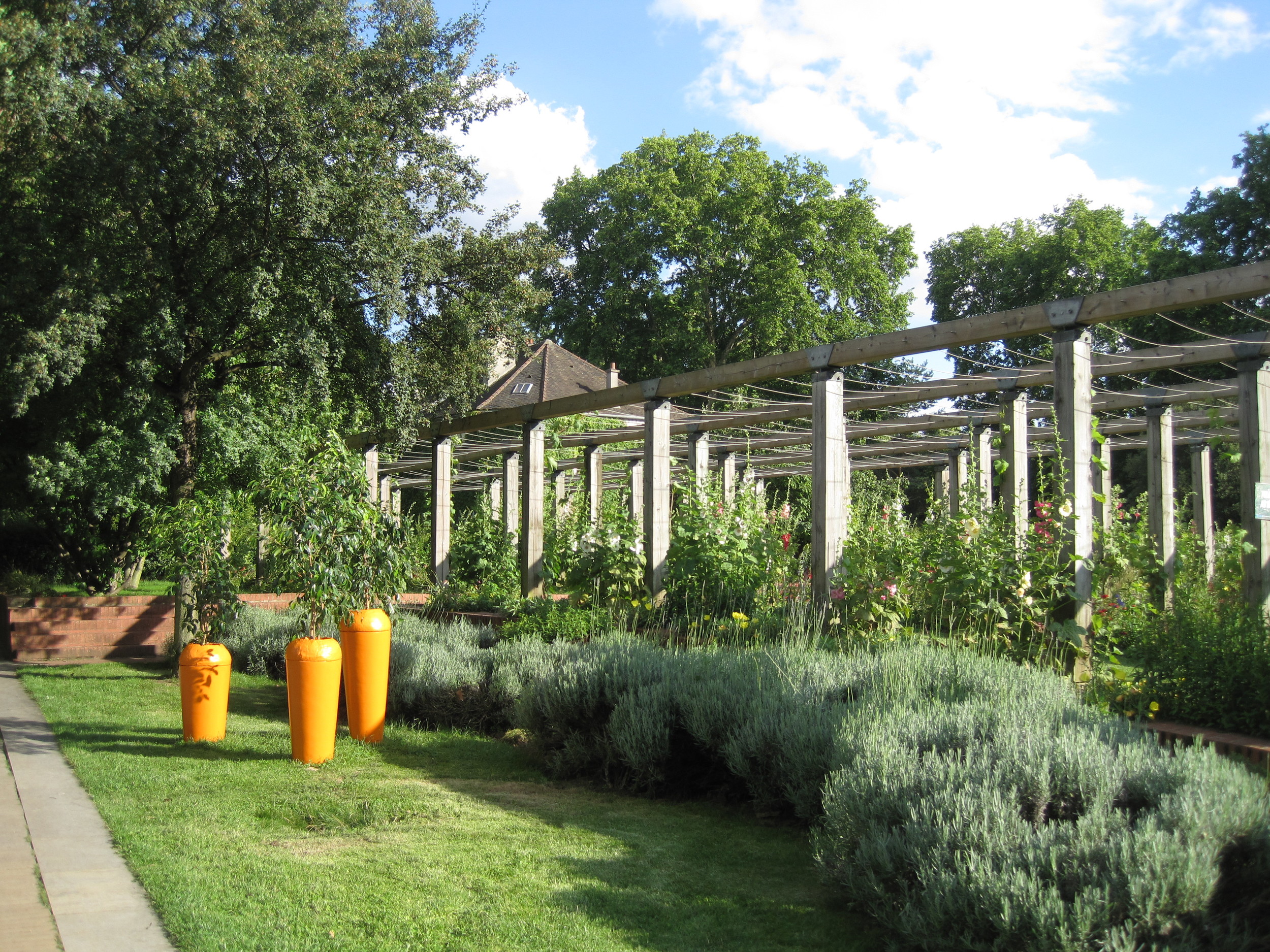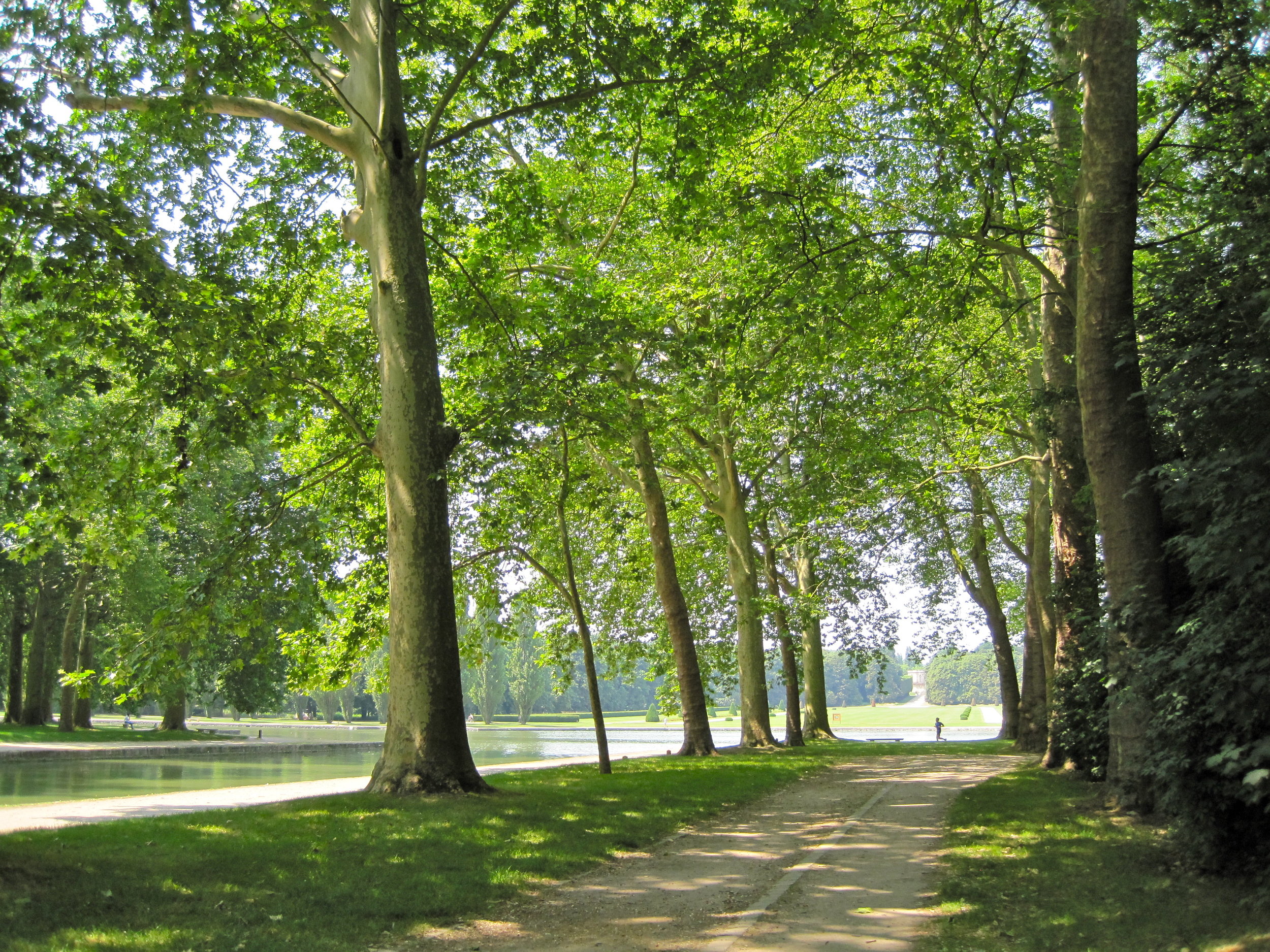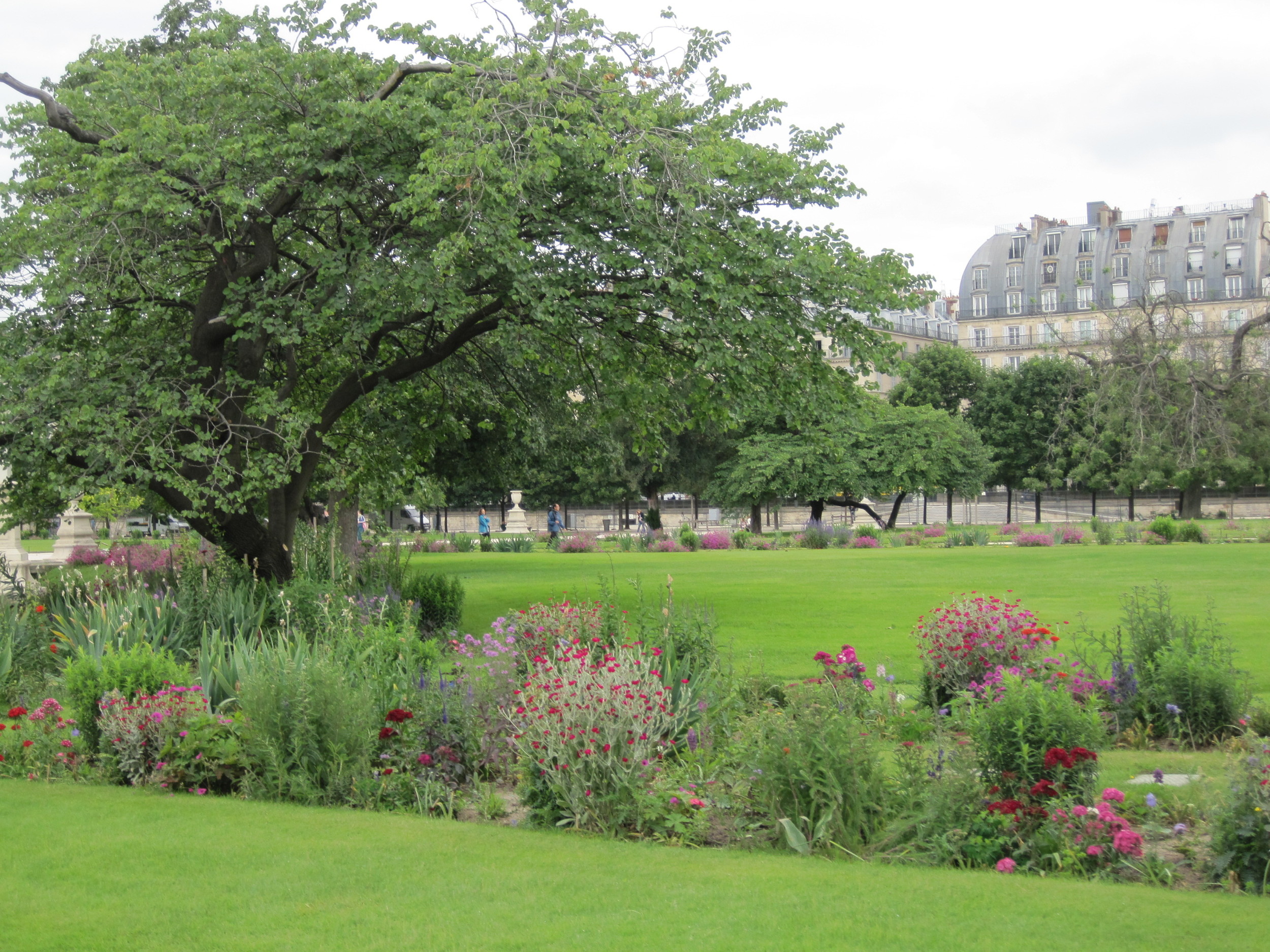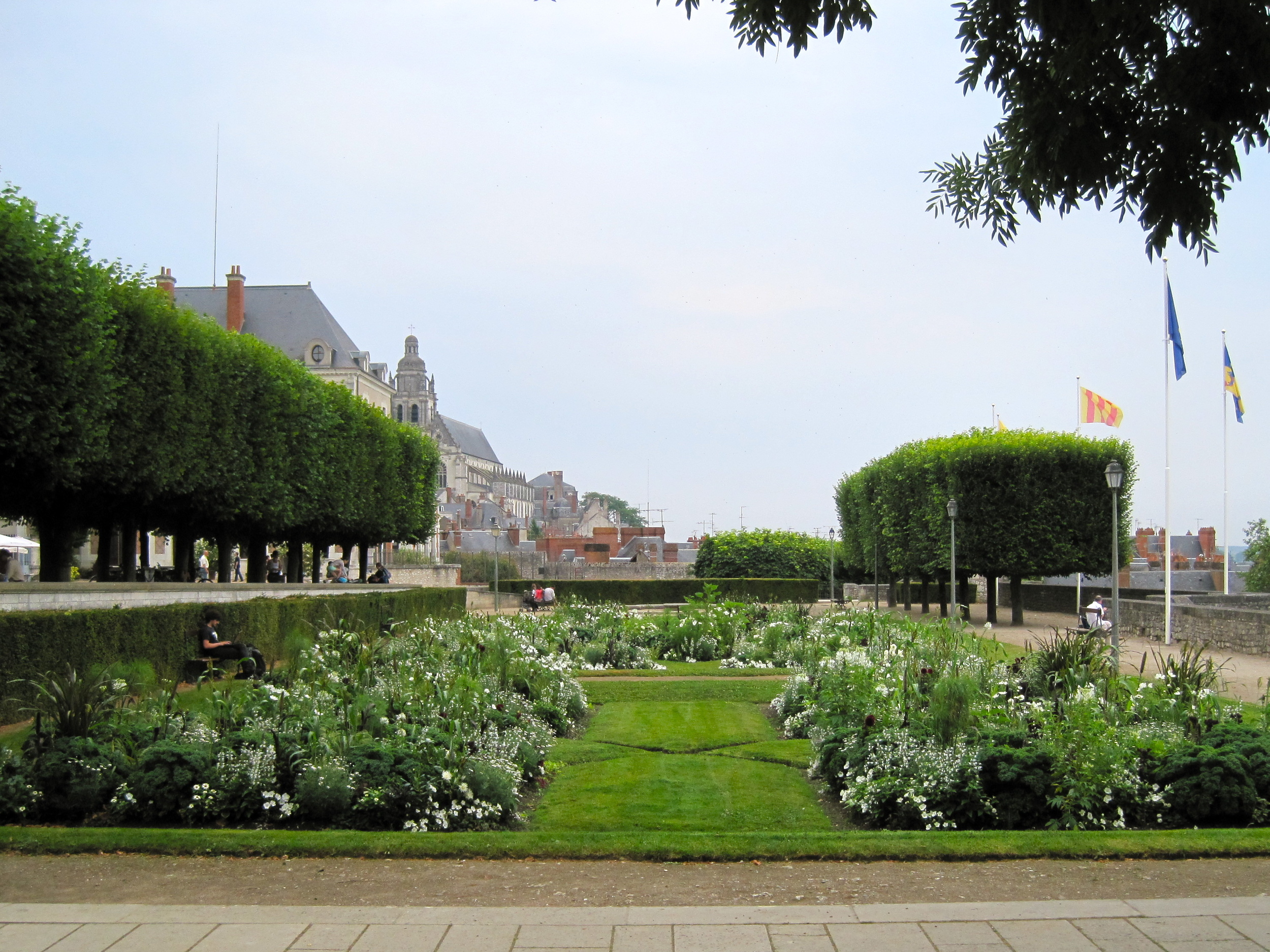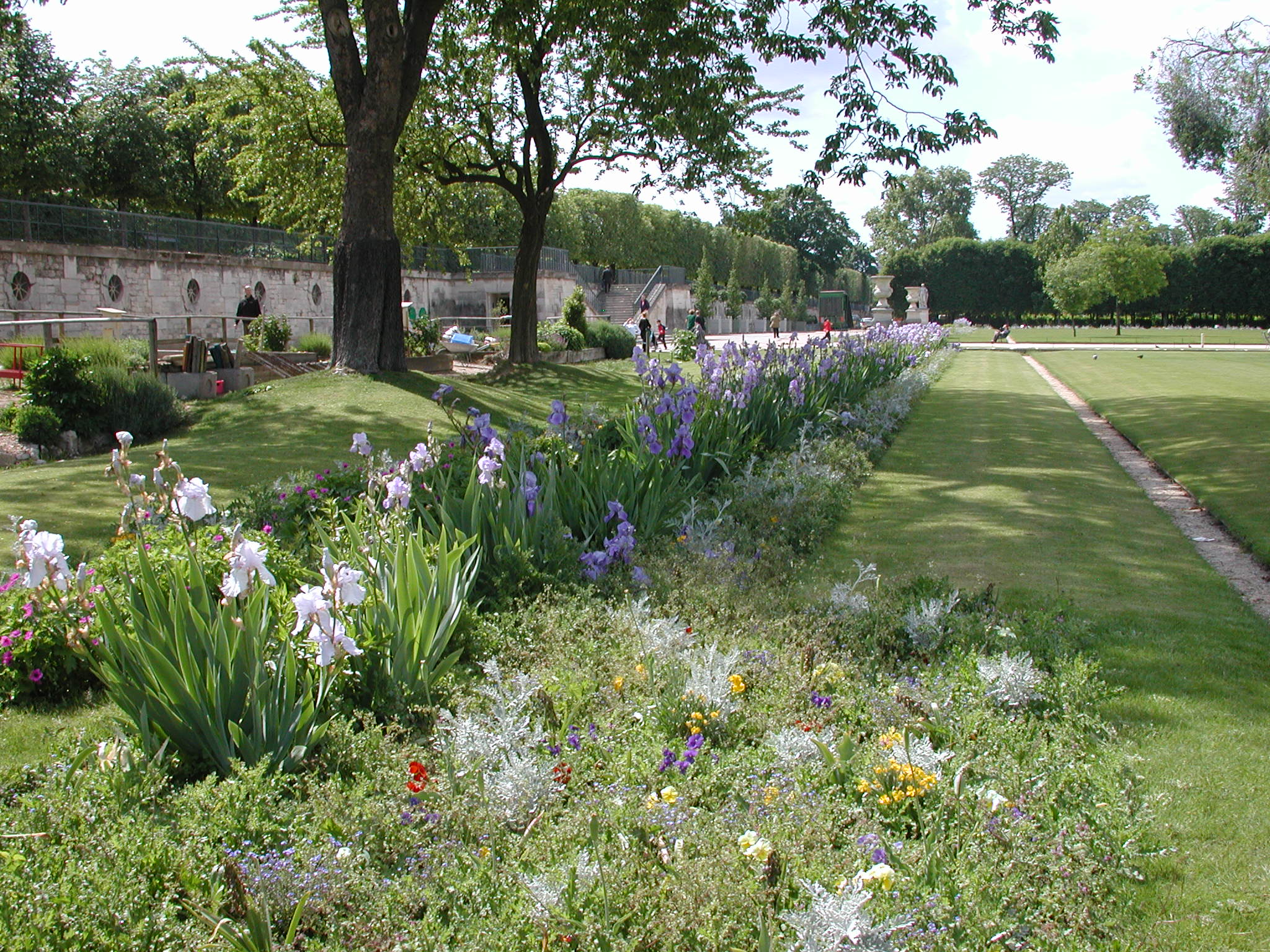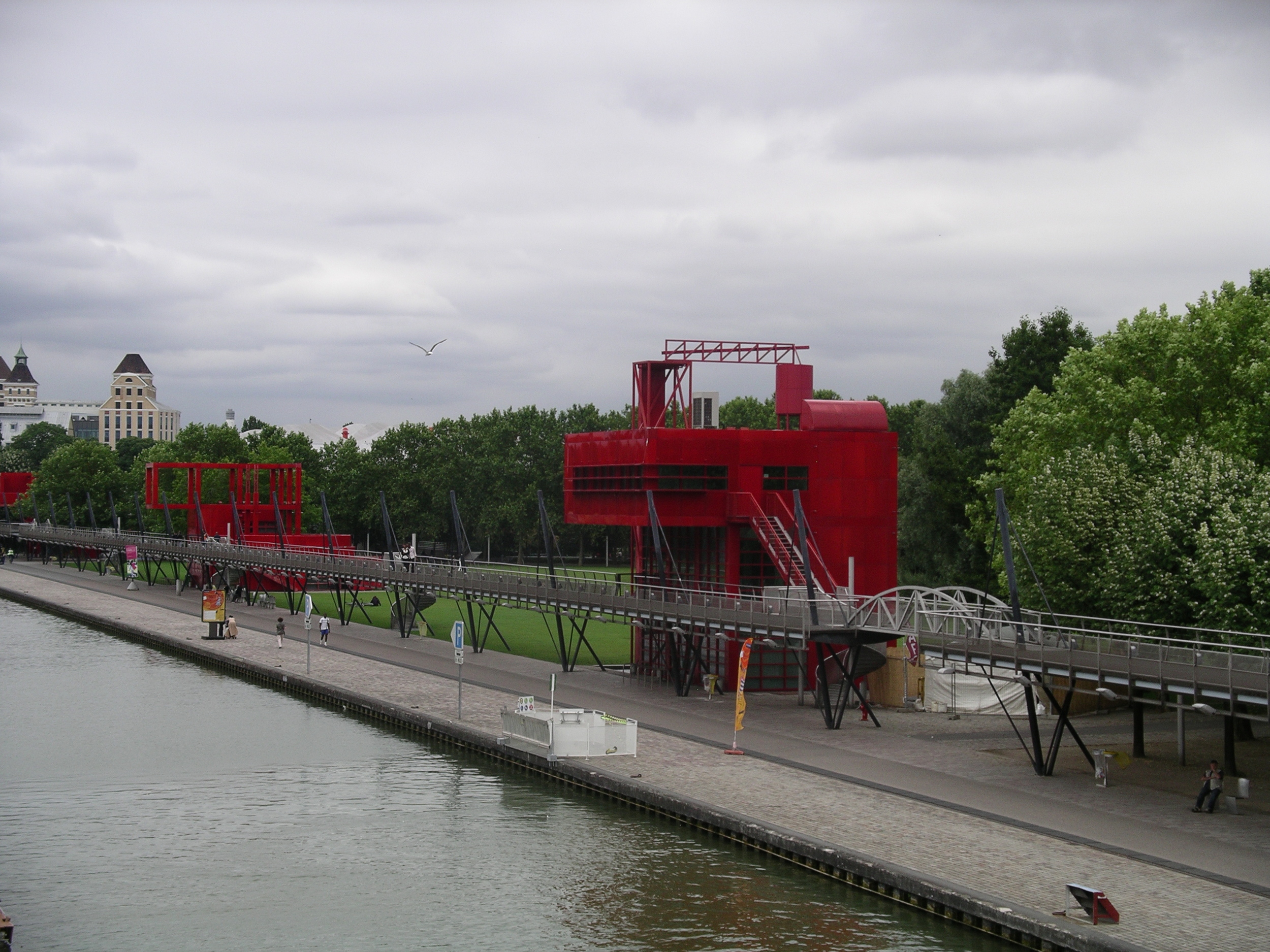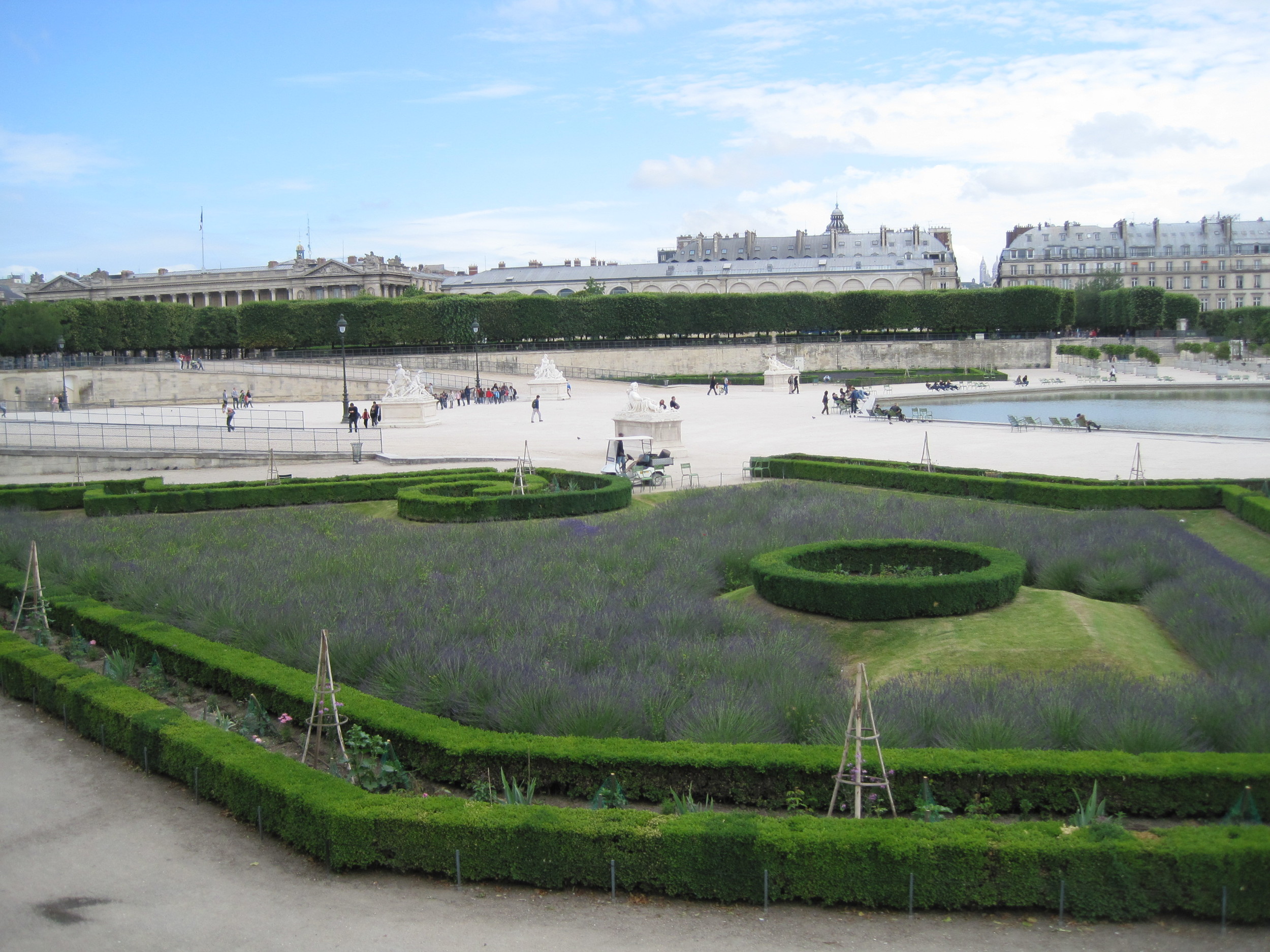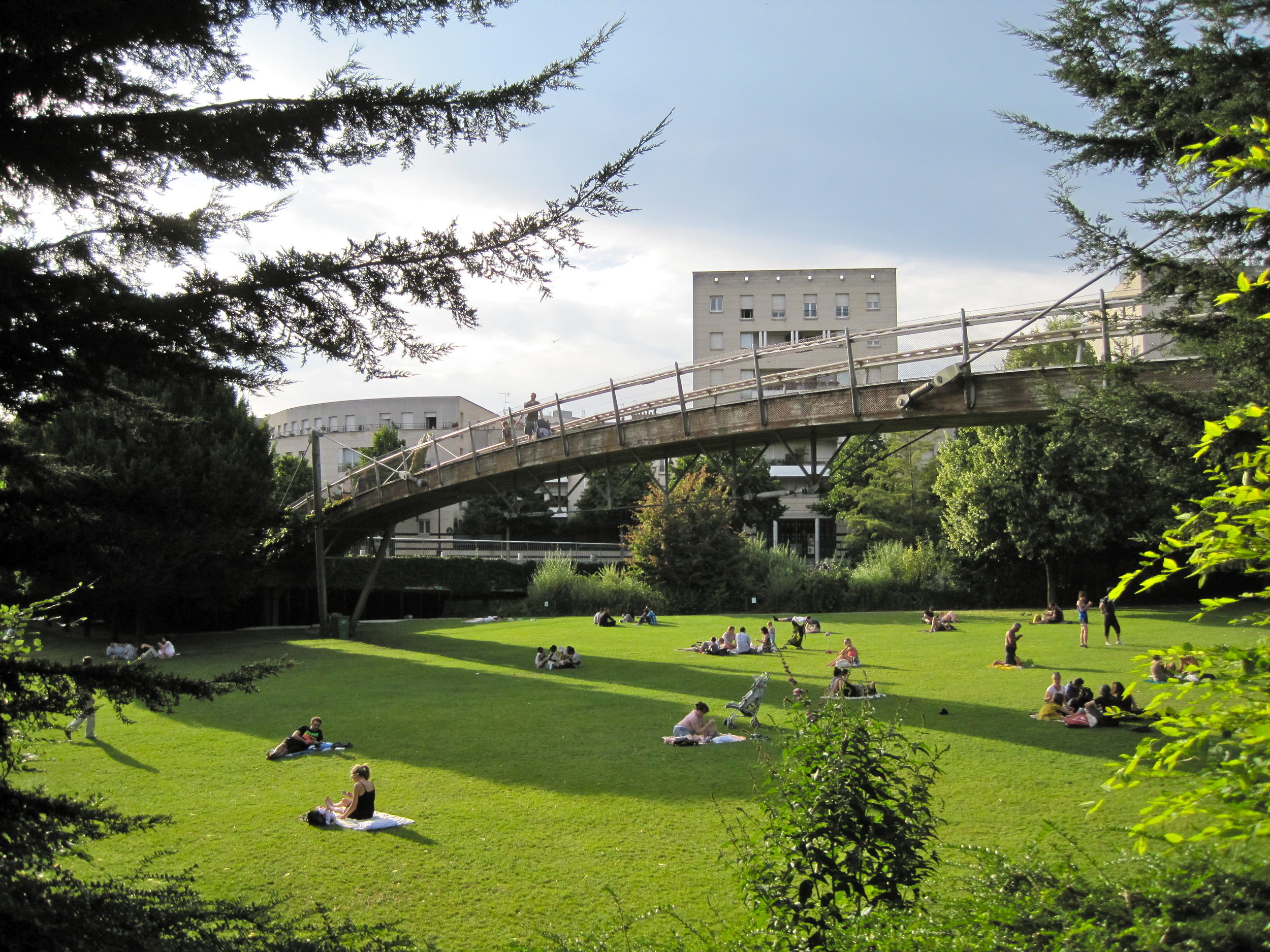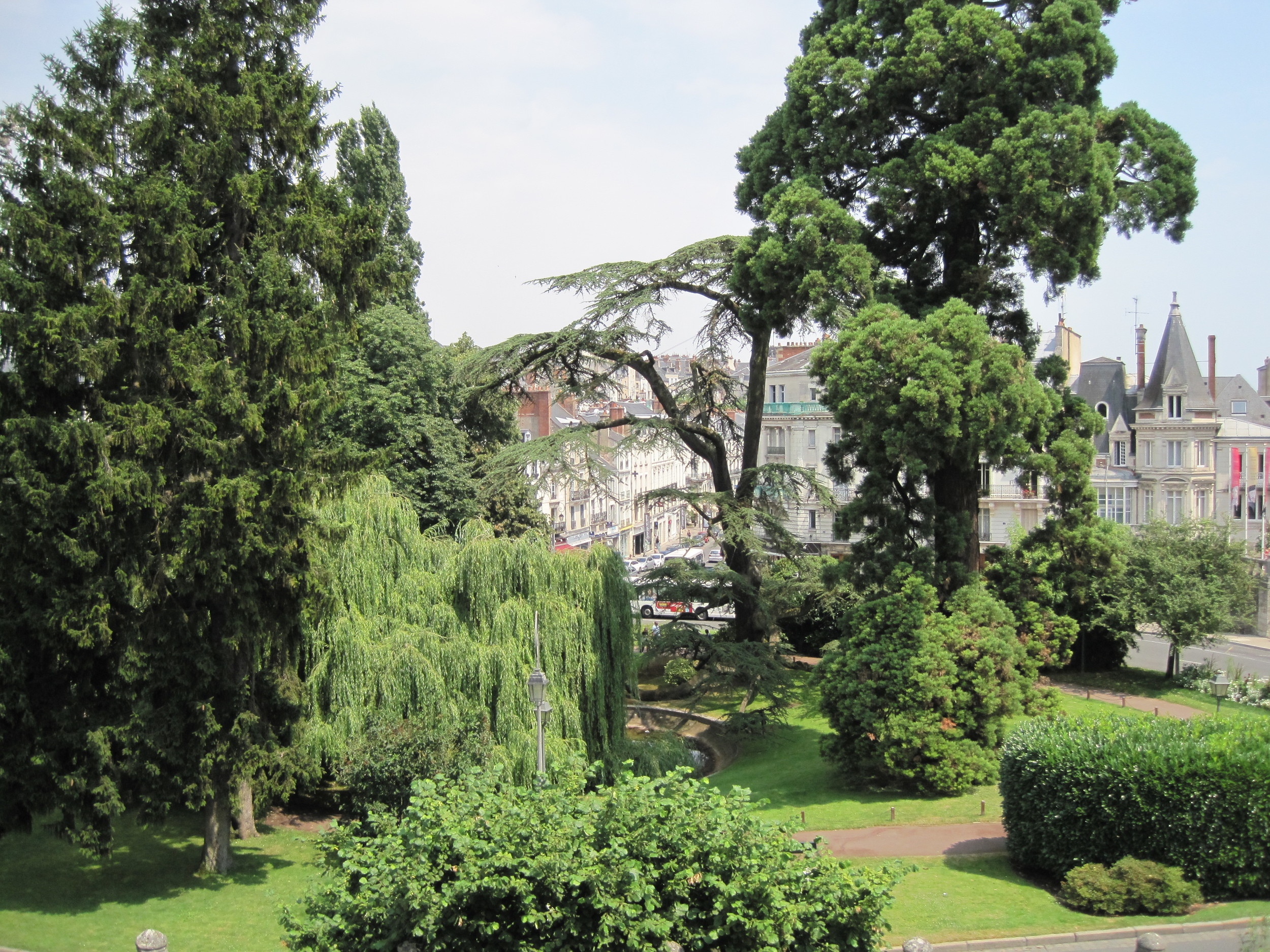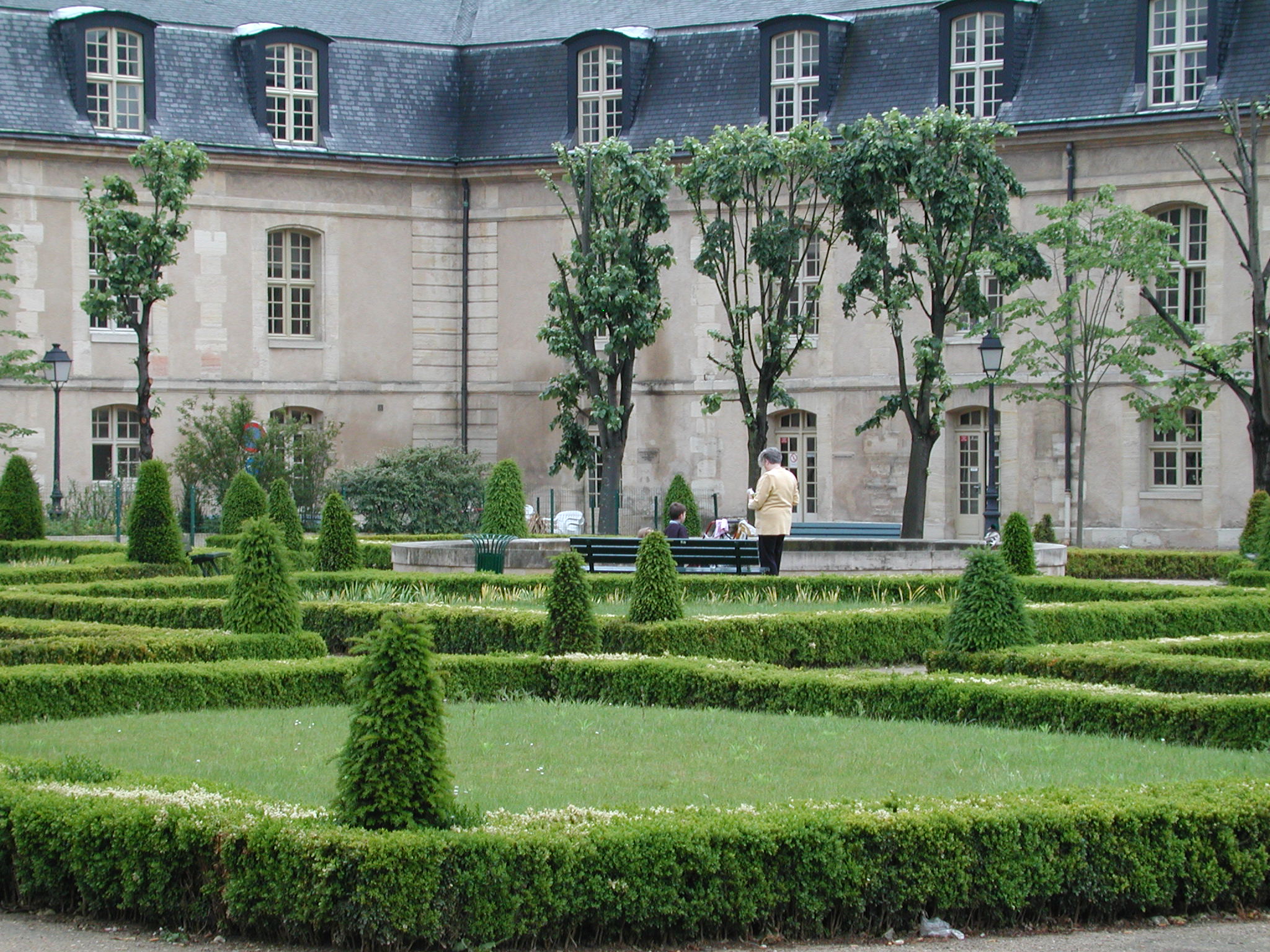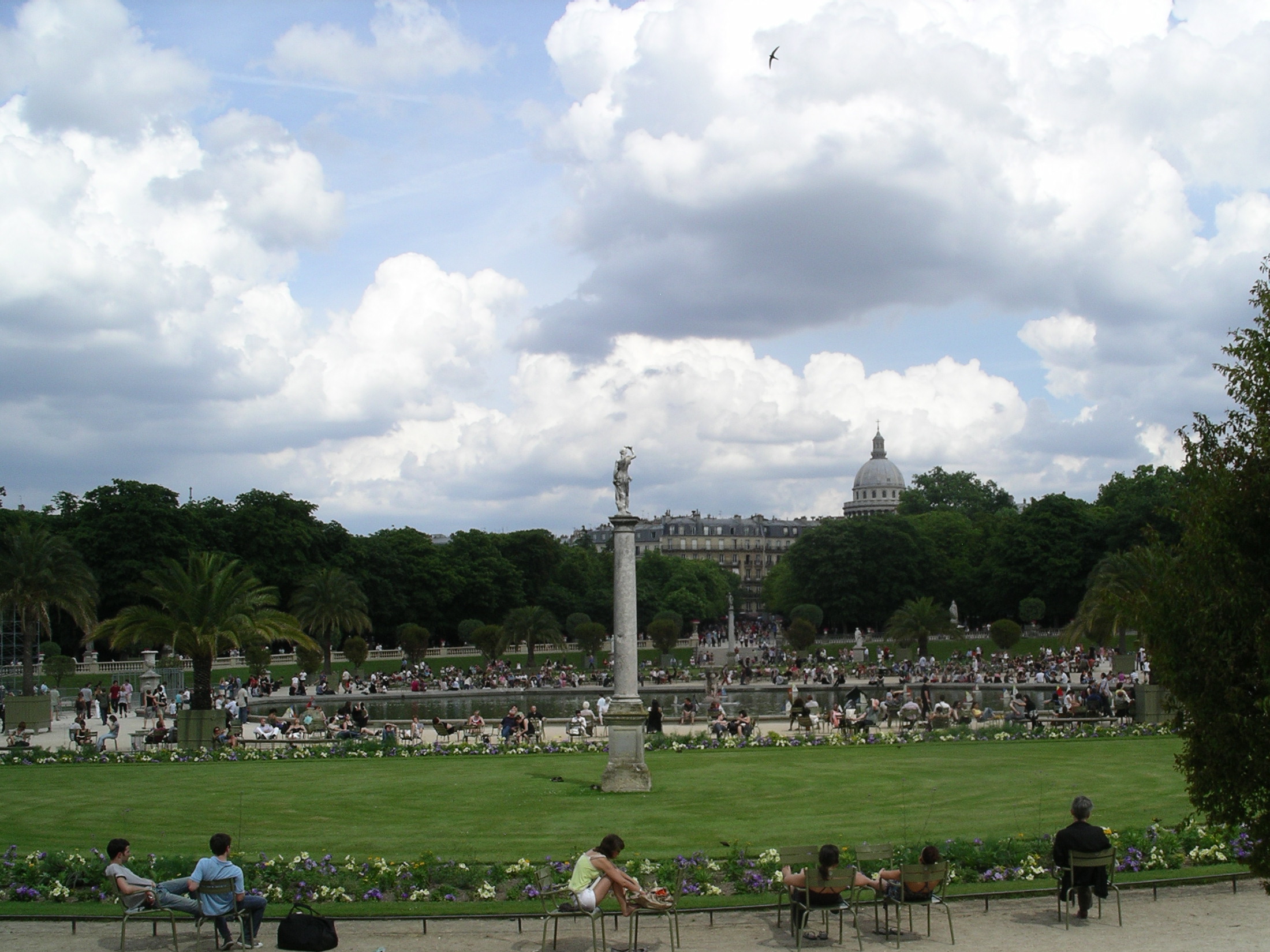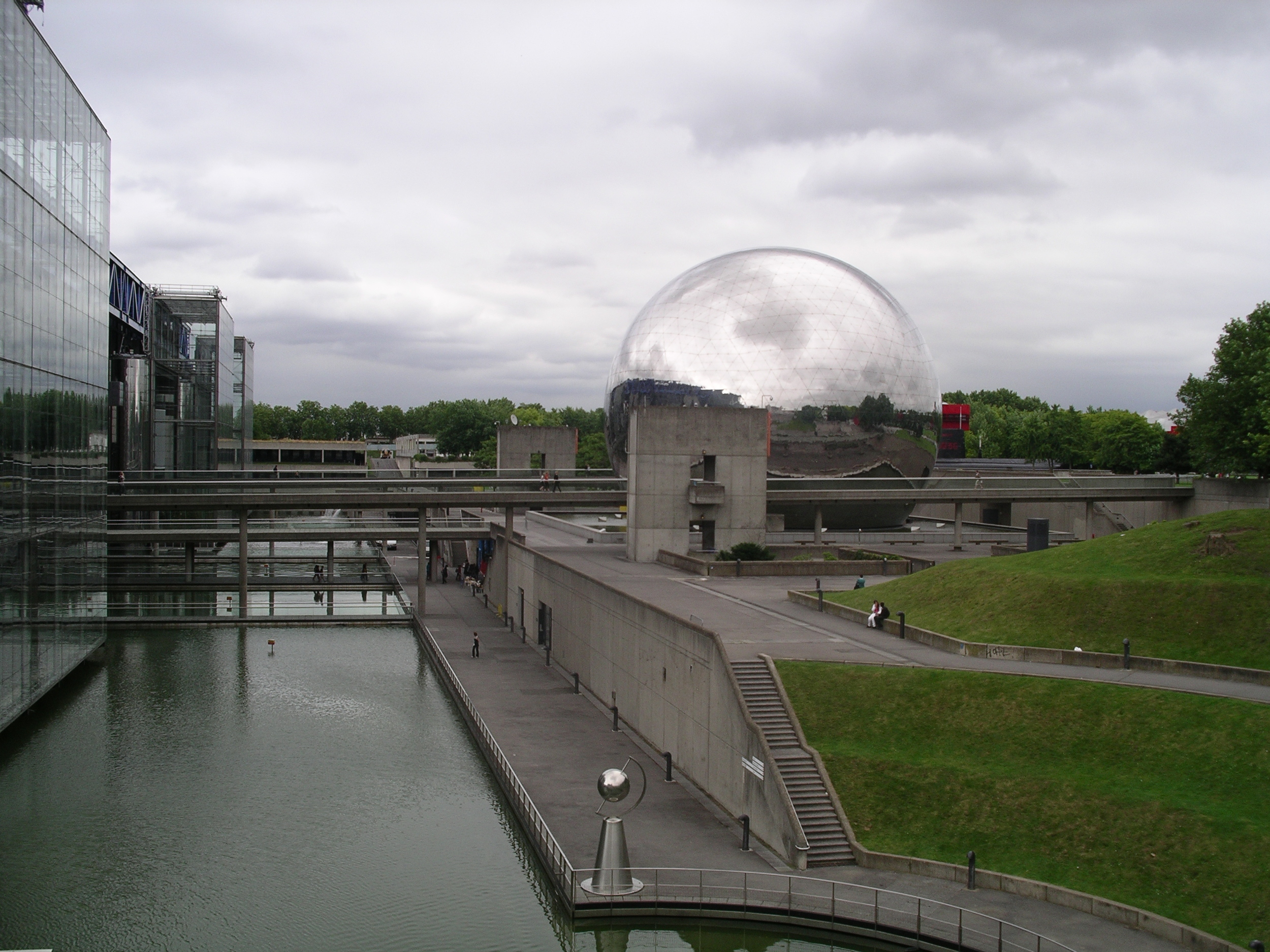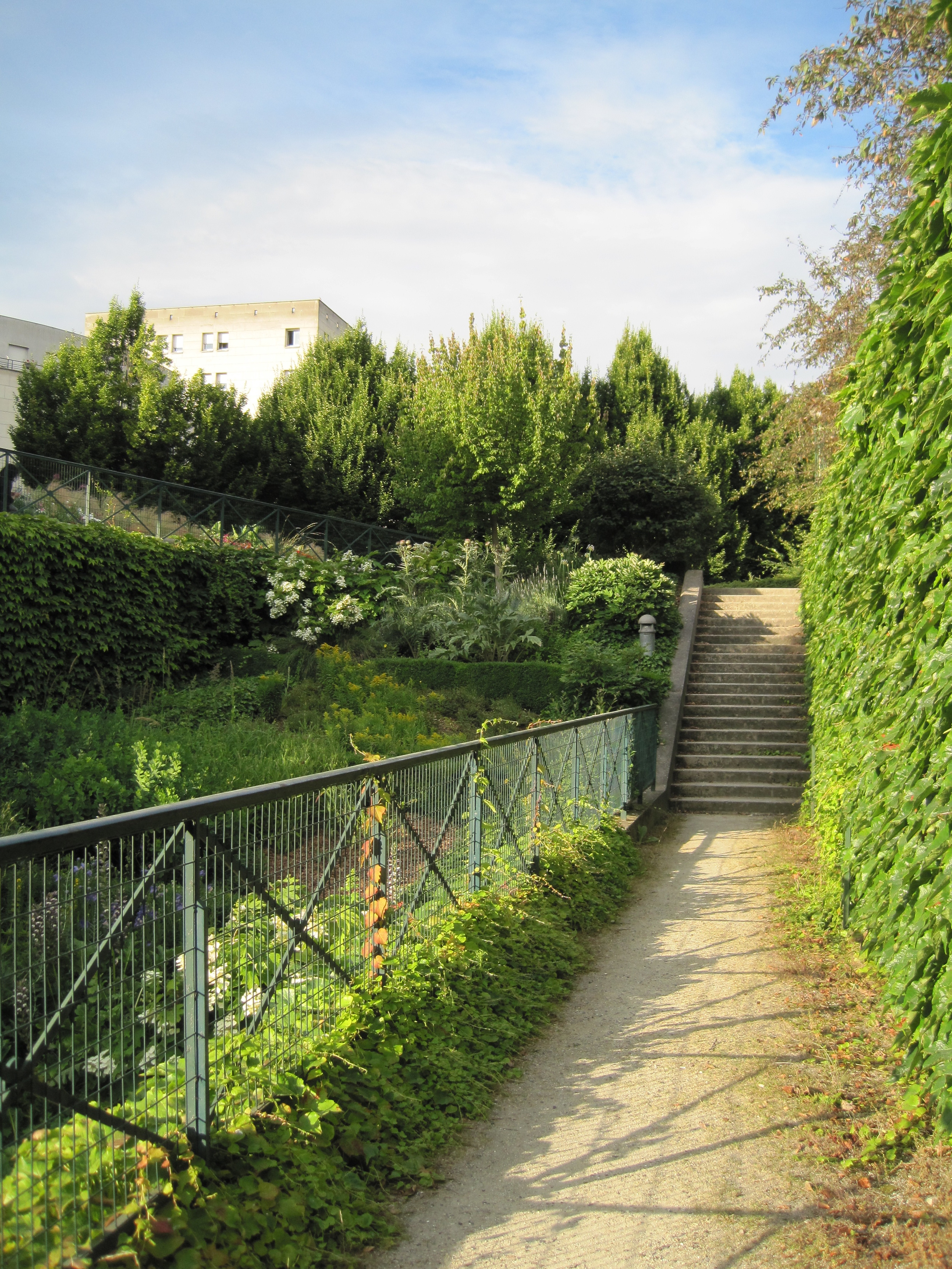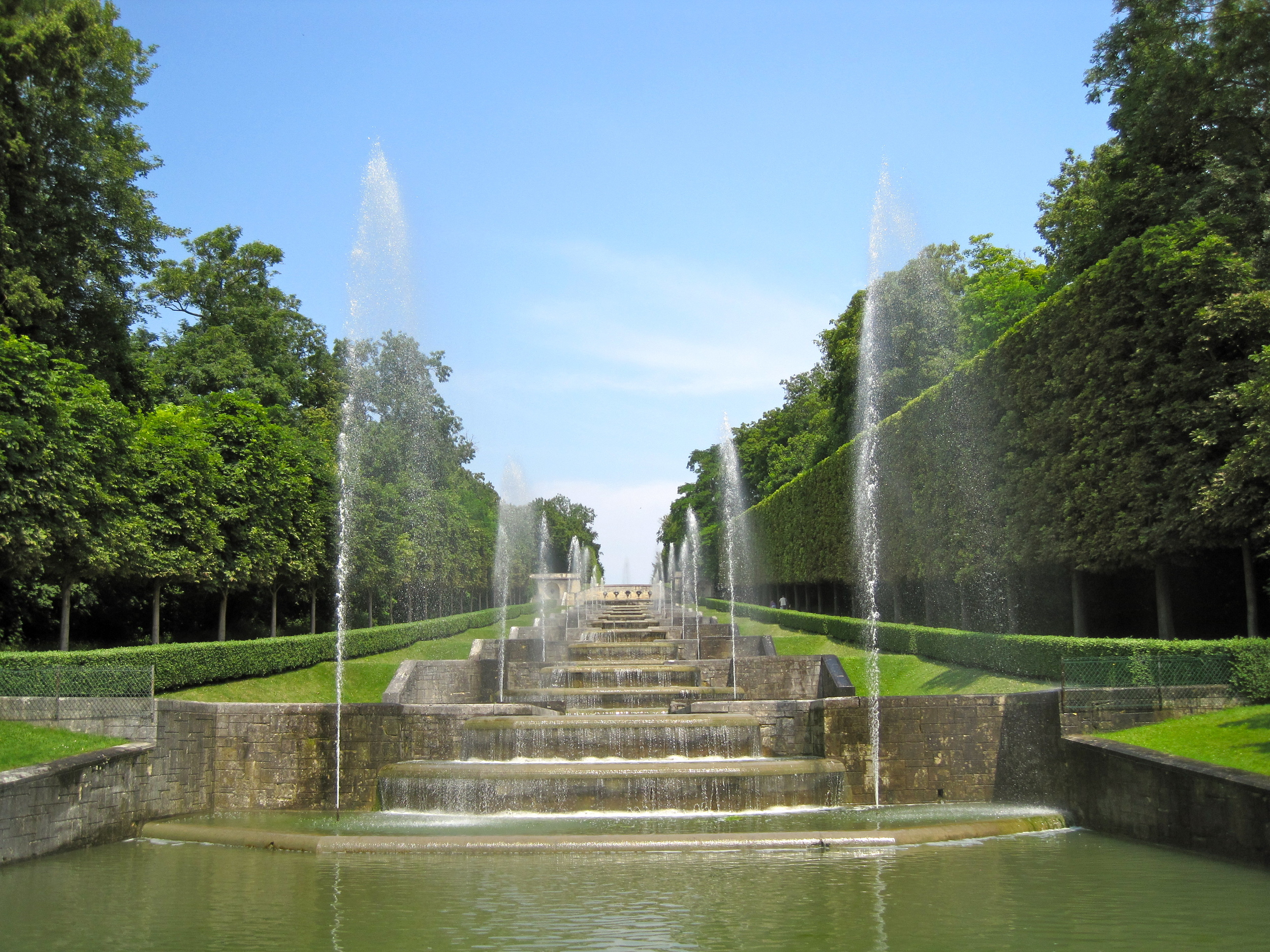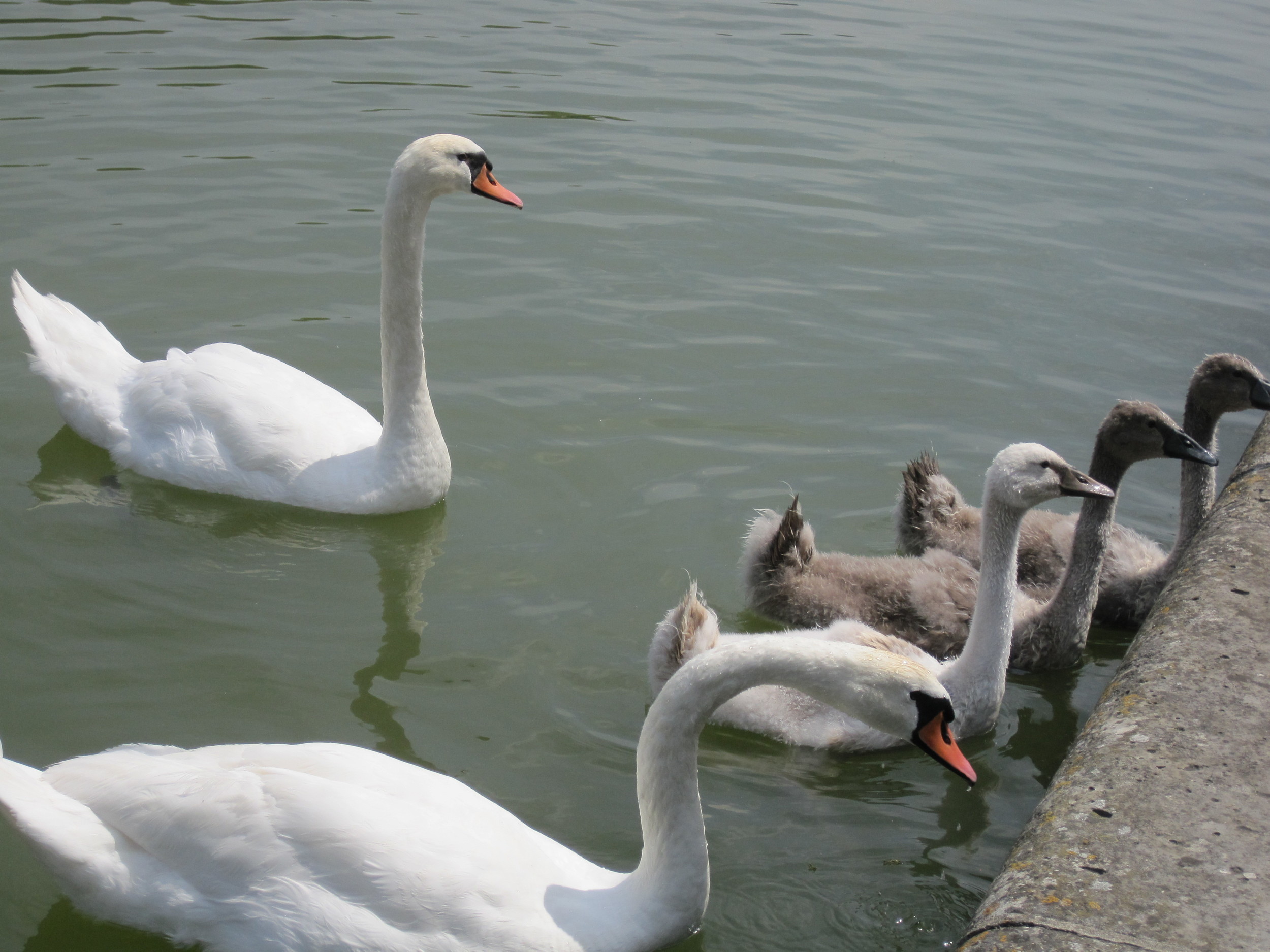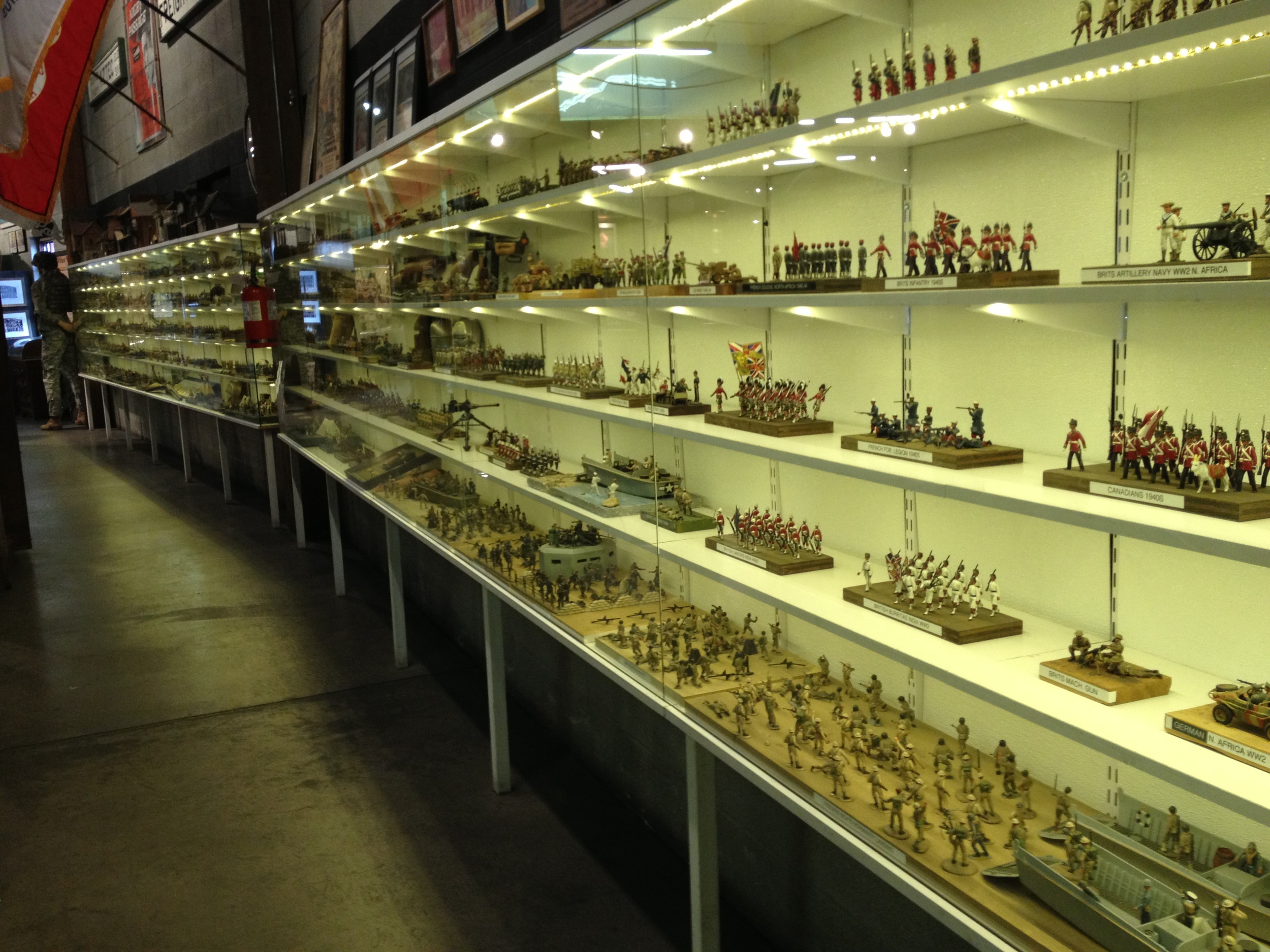Freshly returned from Paris, I'm determined to finish this series once and for all!
Paris and parks are so synonymous, they're practically the same word. Everywhere you turn there are carefully trimmed and planted arcades of trees, windowboxes and street urns spilling over with flowery vines, sculpted topiaries and manicured lawns. But truthfully, none of these things guarantees a park. There are some rules.
Rule Number One: Parks must be free. Parisians think it ludicrous to pay for basic human rights such as breathing, talking and relaxing in nature. I have to say I admire their attitude and have started voting "yes" on any question of public green spaces in my community, borderline libertarian though I am.
Interestingly, although the chateaux of the Loire valley (including those close to Paris, such as Versailles and Fontainebleau) all require admission fees to the house and gardens, there is always a public park that adjoins them, often so seamlessly you don't even notice the ticket checkpoint. This is good to know for anyone who isn't as fond of tapestries and topiaries as the rest of his group.
Rule Number Two: There must be a place to sit down -- preferably, to lie down. Parisians routinely travel with blankets, shawls, and something appropriate for an impromptu picnic -- fruit, cheese, wine, all of the above. Good conversation can only take place when both parties are comfortable, and what's more comfortable than stretching out with grass between your toes?
This past trip I flew directly from a conference to meet Rob and the rest of the group in Paris. After a seven-hour flight and another hour in the taxi, I dropped my things at the hotel, showered quickly, grabbed a croissant and led the group on another two-hour metro-train-bus-foot marathon to Chateau Fontainebleau. Once the students were safely inside, I told Rob I had to go lie down for awhile, and headed for the park. I found a stone bench in the shade and fell fast asleep.
About an hour later I awoke to the sound of sharp scolding. Breathless, I sat up, afraid I had transgressed some local ordinance, but the two park employees were only scolding a group of tourists for feeding the ducks. When they saw my wild eyes (and wilder hair, I'm sure) they waved me off. "Vouz pouvez dormir, madame," one assured me, and "La sieste, c'est autorisee," the other agreed. Naps are authorized. Good to know.
Rule Number Three: There must be some form of water present. A pool, a canal, a fountain, a lake -- anything that allows the play of light to dazzle the eyes, the rushing music to quiet the mind, a slightly cooler temperature to moisten the skin. Without water, grass is just a lawn, but alongside water, grass becomes a playground, a cushion, a studio. Water is vital to the park-ness of a park.
When my sister was traveling in Europe, she made plans to meet a friend in Italy: "At ten o'clock by the FOUNTAIN. How amazing is that?!" And truly, fountains and ruins and carefully pruned hedges and exuberant, overflowing gardens are all just part of life there. Our aesthetic is a little coarser on this side of the Atlantic, where civilization is a newer idea. After hearing my sister's story, I tried to imagine where I would meet a friend who was coming to my town. The post office? The coffee shop? No central design feature stood out. That struck me as sad.
When I started writing, I was sure there were more rules. But I think this is it. Children are welcome, of course, and parks are one place where they can run and scream with abandon -- but some parks are quiet, and that's okay. Likewise with dogs, with workout clothing (though you see blessed few of this in France, as opposed to here where a leisurely stroll is often impossible between all the huffing and whirring around you.)
It's a simple thing, really. A place to sit and think, catch some fresh air, clear your head. We like them in America, but to the French, parks are non-negotiable.
Posts in the Paris Top 10 Series:
- Wait and see . . .
- Wait and see . . .
- Parks
- Music
- Museums
- Fine Dining
- Conversation
- Churches
- Chateaus
- Cafes

